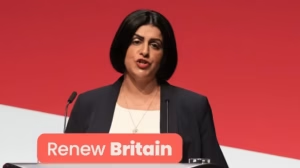Picture this: You’ve spent months planning your dream education in the UK. You’ve got your acceptance letter, your heart set on studying at a prestigious British university, and then… BOOM. Visa rejection.
I’ve seen too many bright students crash and burn because of silly mistakes that could’ve been avoided. These aren’t just minor hiccups – they’re dream-crushing, wallet-emptying disasters that leave you watching your friends pack for London while you’re stuck explaining to your family why your “sure thing” fell apart.
The UK student visa process isn’t just paperwork. It’s a minefield where one wrong step can blow up months of planning. But here’s the thing – most rejections happen for the same predictable reasons. And today, I’m going to show you exactly what those traps are and how to sidestep them like a pro.
The Harsh Reality of UK Student Visa Rejections
Before we dive into the traps, let’s talk numbers. The UK doesn’t make it easy, and the statistics prove it. Every year, thousands of hopeful students get that dreaded rejection letter. But here’s what the rejection statistics don’t tell you – most of these failures are completely preventable.
The visa officers aren’t out to get you, but they’re not there to help you either. They’re looking for reasons to say “no,” and if you hand them those reasons on a silver platter, they’ll take it.
Trap #1: The Financial Fumble That Kills Dreams
Let me start with the big one – the trap that catches more students than any other. Money. Specifically, not having enough of it, or worse, not proving you have enough of it correctly.
As of January 2025, the UK government raised the maintenance fund requirements, and I’m seeing students get caught off guard left and right. Here’s what you need to know:
The New Financial Requirements:
- London students: £1,483 per month (up to 9 months)
- Outside London: £1,136 per month (up to 9 months)
- Plus your full tuition fees
But here’s where it gets tricky. It’s not just about having the money – it’s about proving it the right way. The 28-day rule is where I see most people mess up. You need to show that money has been sitting in your account (or your sponsor’s account) for 28 consecutive days, and the final day must be within 31 days of your application.
The trap: Students think they can just move money around right before applying. Wrong. The visa officers can spot financial gymnastics from a mile away.
How to avoid it: Keep your money in one place for at least 28 days before applying. No big deposits, no sudden transfers, no borrowing money from friends to “boost” your balance.
Trap #2: The CAS Catastrophe
Your Confirmation of Acceptance for Studies (CAS) isn’t just a fancy piece of paper – it’s your golden ticket. But I’ve seen students treat it like junk mail, and that’s a massive mistake.
The trap: Using an expired CAS, having incorrect information on your CAS, or not understanding what your CAS actually says.
Every single detail on your CAS must match your visa application perfectly. Your name, your course details, your start date – everything. One tiny discrepancy and you’re done.
How to avoid it: Read your CAS like your life depends on it. Check every single detail twice. If anything looks wrong, contact your university immediately. Don’t assume it’s “close enough.”
Trap #3: The English Language Landmine
“But I speak English!” I hear this all the time from rejected students who thought their conversational English was enough. The UK visa system doesn’t care how well you think you speak English – they want proof.
The trap: Assuming you’re exempt from English language requirements or providing the wrong type of English test.
The Home Office has specific requirements for English language tests. IELTS, TOEFL, Pearson PTE – they’re all accepted, but they must be the right type and from approved test centers.
How to avoid it:
- Check if you’re actually exempt (you might not be)
- Take the test from an approved center
- Make sure your test is still valid (usually within 2 years)
- Meet the minimum scores for your course level
Trap #4: The Genuine Student Gauntlet
This is the subjective trap that catches many off guard. The visa officers need to believe you’re a “genuine student” – that you actually intend to study and not just use the visa to work or live in the UK.
The trap: Having a weak personal statement, inconsistent study plans, or gaps in your education that you can’t explain convincingly.
I’ve seen students with perfect grades get rejected because their motivation letter read like it was written by ChatGPT (and probably was). The officers can tell when you’re not being authentic.
How to avoid it:
- Write a compelling, personal statement about why you want to study in the UK
- Show clear progression in your studies
- Explain any gaps in your education honestly
- Demonstrate knowledge about your course and career goals
Trap #5: The Document Disaster
This one’s painful because it’s so avoidable. Missing documents, incorrect documents, or documents that aren’t properly translated or certified.
The trap: Thinking “close enough” is good enough when it comes to documentation.
Every document needs to be exactly right. Bank statements need to be official. Transcripts need to be certified. Translations need to be done by approved translators.
How to avoid it:
- Create a comprehensive checklist
- Get everything certified properly
- Use approved translators for non-English documents
- Don’t submit photocopies where originals are required
Trap #6: The Medical Examination Miss
Depending on where you’re from, you might need a tuberculosis (TB) test. This isn’t optional, and you can’t do it anywhere – it has to be at an approved clinic.
The trap: Not knowing you need a TB test, or getting it done at the wrong place.
Countries requiring TB tests include: Most of Africa, Asia, Central and South America, and some Eastern European countries.
How to avoid it:
- Check if your country is on the TB test list
- Book at an approved clinic only
- Get it done within 6 months of your application
Trap #7: The Academic Progression Puzzle
Your education needs to make sense as a logical progression. If you’re jumping from engineering to art history with no explanation, the visa officers are going to have questions.
The trap: Choosing a course that doesn’t align with your educational background or career goals without proper justification.
How to avoid it:
- Choose courses that build on your previous studies
- If changing fields, explain why convincingly
- Show how the course fits your career plans
Trap #8: The Sponsor Statement Slip-Up
If someone else is funding your studies, their financial evidence needs to be rock solid. This is where many family-sponsored students stumble.
The trap: Having weak sponsor documentation or not clearly establishing the relationship between you and your sponsor.
How to avoid it:
- Get official sponsor letters
- Provide clear evidence of your relationship
- Include sponsor’s financial documents
- Show the sponsor’s legal right to provide funds
Trap #9: The Application Form Blunders
This sounds basic, but you’d be shocked how many applications get rejected for simple form errors. Spelling mistakes, inconsistent dates, wrong information – these “small” errors can sink your entire application.
The trap: Rushing through the application form without double-checking everything.
How to avoid it:
- Fill out the form carefully
- Double-check all dates and spellings
- Be consistent across all documents
- Have someone else review it before submitting
Trap #10: The Timing Trap
Applying too late is a classic mistake. UK student visa processing times can be unpredictable, and if you cut it too close, you might miss your course start date even if you get approved.
The trap: Thinking you can apply at the last minute and everything will work out.
Processing times vary:
- Standard applications: 3-8 weeks
- Priority service: 5-10 working days (extra cost)
- Super priority: 24-48 hours (extra cost, limited availability)
How to avoid it:
- Apply as early as possible (up to 6 months before travel)
- Factor in potential delays
- Consider priority services if you’re cutting it close
The Secret Weapon: Professional Help
Here’s something most people won’t tell you – sometimes the smartest move is admitting you need help. Immigration lawyers and education consultants exist for a reason. They’ve seen every trap, every rejection reason, every successful application.
Yes, it costs money. But compare that cost to the price of a rejection: reapplication fees, delayed studies, missed opportunities, and the emotional toll of failure.
Frequently Asked Questions
Q: Can I reapply immediately if my UK student visa is rejected? A: Yes, you can reapply right away, but you need to address the reasons for rejection first. Simply resubmitting the same application will likely result in another rejection.
Q: How much money do I actually need to show for a UK student visa in 2025? A: For courses starting from January 2025, you need £1,483 per month (up to 9 months) for London or £1,136 per month for outside London, plus your full tuition fees. This money must be held for 28 consecutive days.
Q: What happens if I make a small mistake on my application? A: “Small” mistakes can lead to big rejections. The Home Office is strict about accuracy. If you notice an error after submitting, contact them immediately – don’t wait for the decision.
Q: Do I need travel insurance for my UK student visa application? A: Travel insurance isn’t required for the visa application itself, but you’ll need to pay the Immigration Health Surcharge (IHS) as part of your application.
Q: Can I include my parents’ bank statements if they’re sponsoring my studies? A: Yes, but you need to clearly establish your relationship with proper documentation and include a sponsor letter explaining their commitment to fund your studies.
Q: How long should I wait before reapplying after a rejection? A: There’s no mandatory waiting period, but take time to properly address the rejection reasons. Rushing into a reapplication without fixing the issues will likely result in another rejection.
Q: Is it worth paying for priority processing? A: If you’re cutting it close to your course start date, priority processing can be worth it. However, it doesn’t guarantee approval – just faster processing of your application.
Q: What should I do if my TB test expires before I apply? A: You’ll need to take a new TB test. The test must be valid (within 6 months) when you submit your application.
Q: Can I work while waiting for my student visa decision? A: If you’re applying from outside the UK, you cannot work while waiting for your decision. If you’re switching from another visa type within the UK, your work rights depend on your current visa status.
Q: What’s the difference between a CAS and an unconditional offer letter? A: An unconditional offer letter is your university’s acceptance. A CAS is the official document issued by your university that you need for your visa application – it contains specific reference numbers and details required by the Home Office.
Your Next Steps: Don’t Let These Traps Catch You
Look, I get it. The UK student visa process is overwhelming. There are forms to fill, documents to gather, requirements to meet, and deadlines to hit. But here’s the thing – every single trap I’ve outlined above is avoidable.
The students who succeed aren’t necessarily the smartest or the luckiest. They’re the ones who take the process seriously, do their homework, and don’t cut corners.
My advice? Start early, be thorough, and when in doubt, get help.
Don’t let a preventable mistake derail your dreams of studying in the UK. The traps are real, but now you know exactly where they are and how to avoid them.
Your future self will thank you for taking the time to do this right the first time. Trust me on this one – it’s worth the extra effort to avoid joining the ranks of rejected applicants who are kicking themselves for making easily preventable mistakes.
The UK is waiting for you. Don’t let these traps stop you from getting there.
Sources
- UK Government Official Guidance – GOV.UK Student Visa Requirements
- UK Government Financial Evidence for Student Visa Applicants – Updated January 2025
- University of Huddersfield – Visa Refusals Documentation
- UKCISA – Student Immigration Guidance
- Home Office Immigration Statistics
- University of Westminster – Financial Requirements and 28-Day Rule
- Various UK University Immigration Advisory Services
- UK Immigration Law Updates – 2025 Changes
- Woodcock Law – Common UK Visa Rejection Reasons
- SmartMove2UK – Student Visa Rejection Analysis



